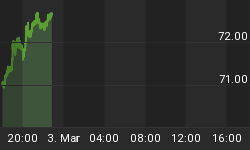This time last week, the biggest bailout in the history of the world seemed to be a fait accompli. Last weekend, the Fed Chairman and the Secretary of the Treasury had harsh words of doom and gloom for Congressional leaders, with the rest of the administration parroting along, and by last Monday it seemed both parties were about to fall in line and vote our Republic away by socializing the banking industry through this bailout.
Foolish business behavior was about to be rewarded, and propped up a little longer, the bubble blown a little bigger, and our coming Depression made that much greater, but then something happened on the way to the House floor.
Citizens made their voices heard.
The real story behind the story in Congress this week was the thousands of calls and emails sent to Representatives, clogging up inboxes and even slowing down the House internet system. Slowly, like the Titanic turning around, sentiments on the Hill shifted, and we heard Congressmen capitulating and changing their tune a little, desperately trying to find ways to salvage the bailout without completely enraging their constituencies.
Now we hear about taxpayer protections, about golden parachutes, and about other nuances that hardly cover up the fact that we would be creating more money out of thin air and further devaluing the dollar! The problem is not HOW the government is spending this money; it's the fact that the government is spending this money. We don't have it. We are already nearly $10 trillion in debt, not including unfunded liabilities. We already spend about $1 trillion a year we don't have on our overseas empire. Now nearly $1 trillion more is somehow supposed to magically appear and solve all our problems! No - creating more money might delay the inevitable for some well-connected banks on Wall Street, but in a few weeks we will find ourselves right back in this same position, but much poorer.
The unfortunate thing is that we've already spent at least $700 billion on other bailouts that did not solve the problem. And while all this negotiation was taking place, the auto industry was quietly bailed out, with no controversy, no discussion, to the tune of $25 billion.
Inevitably, it appears Congress will call their constituents' bluff and the bailout will pass, because that is the habit Wall Street and Washington have fallen into. People are right to be concerned about our financial future. I've been talking for 30 some years about reasons we need to be concerned and change our ways. We find ourselves now in a position of no good options, and no silver bullets. But the worst thing we can do is to compound our problems by intensifying the mistakes of the past. We do have tough economic times ahead, no doubt, no matter what we do, even if we do nothing. The question, is will we have the courage to take our medicine now and get it over with, or will we prolong the misery for many years to come? I'm less and less optimistic about the answer to that question.
















